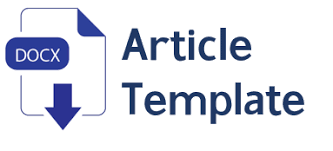Peran Literasi Keuangan Syari’ah Dalam Membentuk Keputusan Investasi Syari’ah Pekerja Generasi Milenial Dan Gen Z
DOI:
https://doi.org/10.59086/jam.v4i1.685Keywords:
Islamic financial literacy, Islamic investment , Millennial , Gen zAbstract
This study aims to explore the role of Islamic financial literacy in investment decision-making by millennial and Gen Z workers in Mandau District. Using a qualitative approach with a case study method, data were obtained through in-depth interviews with informants aged 22 to 34 years who already have income and at least 6 months of investment experience. The results of the study show that the Islamic financial literacy of millennial and Gen Z workers in Mandau District is still low, causing them to be less interested in Islamic investment. The implication of this research is that the government, educational institutions, and financial institutions need to develop Islamic financial education programs in Mandau District.
Downloads
References
Ajzen,. M. Fishbein (2010). Predicting and Changing Behaviour : The Reasoned Action Approach. Psychology Press. New York.
Agustin, I. W. (2024). Penerapan Prinsip-Prinsip Syariah pada Sharia Online Trading System Menurut Fatwa Dewan Syari’ah Nasional No. 80/DSN-MUI/III/2011. Ahkam: Jurnal Hukum Islam, 7(2), 49–61. https://e-journal.uingusdur.ac.id/sahmiyya/article/view/1894
Eduard, M. B., Wibowo, A., Suharyanto, & Sari, P. M. (2024). Pengaruh Pengetahuan Investasi, Literasi Keuangan dan Persepsi Risiko terhadap Keputusan Investasi pada Generasi Milenial dan Gen Z. Jurnal Sentri, STIE Nusantara Global. https://ejournal.nusantaraglobal.ac.id/index.php/sentri/article/view/2338
Harahap, A. M., & Hascaryani, T. D. (2024). Pengaruh Literasi Keuangan Syariah, Perilaku Herding, dan Religiusitas terhadap Minat Investasi di Pasar Modal Syariah (Studi pada Generasi Z dan Milenial). Indonesian Economic and Financial Forum (IEFF). https://ieff.ub.ac.id/index.php/ieff/article/view/209
Hardinawati, L., Fathorrazi, M., & Kusbendi. (2024). Pengaruh Literasi Keuangan Syariah dan Motivasi terhadap Keputusan Investasi Generasi Z pada Reksadana Syariah. Jurnal Ekonomi Syariah Tasharruf, Universitas Muhammadiyah Jember. https://ejurnal.unmuhjember.ac.id/index.php/Tasharruf/article/view/2087
Monasari, S., Riyanto, S., & Novekawati. (2024). Penerapan Prinsip Ekonomi Syariah pada Investasi Saham Syariah di Bursa Efek Indonesia. Jurnal Kepastian Hukum dan Keadilan, 6(02), 128–136. https://jurnal.um-palembang.ac.id/KHDK/article/view/9099
Nasution. (2018). Peran Literasi Keuangan Syari’ah Terhadap Keputusan Investasi pada Produk Syari’ah. USU Press. Medan.
Otoritas Jasa Keuangan. (2024). Daftar Efek Syariah Periode I–2024. https://www.ojk.go.id/id/kanal/syariah/data-dan-statistik/daftar-efek-syariah/default.aspx
Rahmawati. (2020). Pengenalan Keuangan Syari’ah Untuk Pemula. Alfabeta. Bandung
Sari, D. P. (2022). “Pengaruh Literasi Keuangan terhadap Keputusan Investasi Mahasiswa. Jurnal Manajemen dan Bisnis Indonesia, 10(1), 22-31.
Selasi, D., Nurpitasari, S., & Saputri, M. (2023). Pengaruh Literasi Keuangan Syariah terhadap Minat Investasi pada Pasar Modal Syariah. Jurnal Ekonomi dan Keuangan Islam, 2(6).
SNLKI. (2017). Starategi Nasional Literasi Keuangan Indonesia. https://www.ojk.go.id/id/berita-dan-kegiatan/publikasi/Documents/Pages/Strategi-Nasional Literasi-Keuangan-Indonesia-(Revisit 2017)-/SNLKI%20(Revisi%202017).pdf.
Tehuayo, R., & Holle, M. H. (2024). Pengaruh Literasi Keuangan Syariah terhadap Pengambilan Keputusan Berinvestasi Masyarakat Masjid di Perbankan Syariah Kota Ambon. Manajemen Dewantara, 8(2), 270–287
Utsman, M. A. (2021). Pengaruh Risk Tolerance, Sikap Keuangan dan Literasi Keuangan Syariah terhadap Keputusan Investasi Saham Syariah pada Investor Milenial. Jurnal Ilmiah Mahasiswa FEB, https://jimfeb.ub.ac.id/index.php/jimfeb/article/view/7643:
Widyastuti, E., & Tarmizi, H. (2021). Literasi Keuangan dan Pengambilan Keputusan Investasi. Mitra Wacana Media.
Downloads
Published
How to Cite
Issue
Section
License
Copyright (c) 2025 Nana Sepdiana

This work is licensed under a Creative Commons Attribution 4.0 International License.
This is an open-access journal. All works are published under the Creative Commons license CC-BY which means that all content is freely available at no charge to the user or his/her Institution. Users are allowed to read, download, copy, write, improve, and create derivative creation even for other lawful purposes, this license permits anyone to, as long as they cite and license the derivative creation under similar terms

This work is licensed under a Creative Commons Attribution 4.0 International License.


















